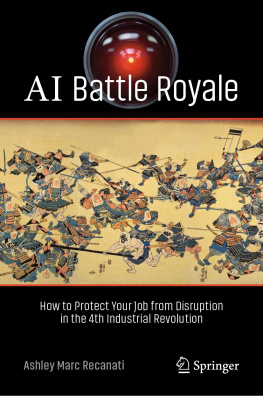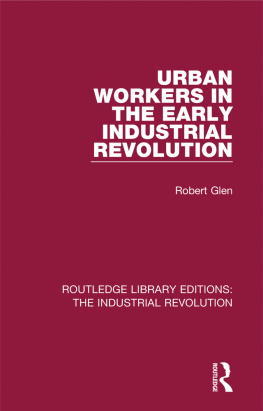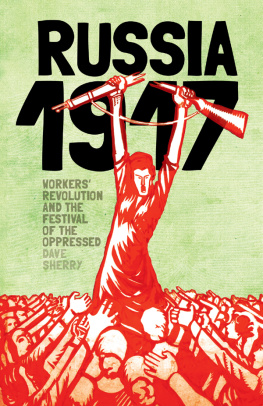WOMEN WORKERS
AND
THE INDUSTRIAL REVOLUTION
17501850
WOMEN WORKERS
AND
THE INDUSTRIAL REVOLUTION
17501850
By
Ivy Pinchbeck
Late Reader in Social Studies at Bedford College
(University of London)
With a New Preface by
THE AUTHOR
Published by
FRANK CASS AND COMPANY LIMITED
2 Park Square, Milton Park, Abingdon,
Oxon, OX14 4RN
by arrangement with the author
and in the United States of America by
FRANK CASS AND COMPANY LIMITED
270 Madison Ave, New York NY 10016
All rights reserved
| First edition | 1930 |
| Reprinted with a new preface | 1969 |
| New impression | 1977 |
Transferred to Digital Printing 2005
ISBN 0 7146 1351 7
TO THE MEMORY OF
MY MOTHER
PREFACE TO THE REPRINTED EDITION
During the years which have elapsed since the publication of this study on the effects of early industrialism on womens employments during the period 17501850, many works have appeared on the womens movement in which political enfranchisment has been represented as the crowning achievement of the emancipation of women. But this is only one aspect of the changed social position of women in the century 18501950. The occupational changes which played so large a part in their emancipation during this period have been curiously neglected, and no general detailed study of occupational changes has yet been written. Some few books and articles have indicated the main changes in womens occupations for various limited periods but no complete history is available for the student, and the census material relating to womens employment in all social strata over the past hundred years still lacks adequate interpretation and supplementation.
This historical neglect is all the more surprising since the second half of the nineteenth century saw the sphere of womens employment enormously increased. New light industries and new opportunities in education enabled women to enter many new occupations and to play a prominent part in industry. As the number of domestic servants fell and the sweated industries declined, women workers in the cycle and light electrical industries steadily increased. The introduction of the typewriter, telephone and office machinery produced opportunities for many thousands of women, and schools, shops and hospitals provided further opportunities of non-manual employment. Later the first world war threw open almost the whole field of industry to them. The effects of all these developments on the social position of women in society still await systematic investigation.
It is hoped that the reprint of this book on the effects of early industrialism on womens employment may prompt a further study of sociological analysis to cover the fascinating developments of the period after 1850.
Ivy Pinchbeck.
LONG CRENDON.
October 1968.
PREFACE TO THE FIRST EDITION
THIS book is an attempt to give an account of the conditions governing the lives of working women during the period 17501850. The Industrial Revolution has been studied from many aspects, but so far womens work during this period has not been the subject of any separate and detailed study. It is hoped that the present book though necessarily limited in scope, may do something towards filling this gap.
My grateful thanks are due to the late Professor Lilian Knowles for her inspiration in the early stages of this research and guidance in the use of materials for this period which she knew so well; and especially am I indebted to Dr. Eileen Power, who has directed my researches for her unfailing interest and her invaluable help in discussion, and in reading and criticizing my manuscript. I must also record my deep gratitude to Mrs Bernard Shaw for her generous scholarship, which allowed me to devote an extra year to this study, and for the kindly interest she has always taken in this subject. Finally, I wish to express my thanks to the Clerk of the Peace at Derby, the Rector of Darlaston, the Vicar of Rugeley, and the Clerk to the Parish Council of Duffield, for giving me facilities to use the documents in their charge
IVY PINCHBECK.
WOMEN WORKERS AND THE INDUSTRIAL REVOLUTION
17501850
IT is often assumed that the woman worker was produced by the Industrial Revolution, and that since that time women have taken an increasing share in the worlds work. This theory is, however, quite unsupported by facts. In every industrial system in the past women have been engaged in productive work and their contribution has been recognised as an indispensable factor. But for centuries, under the handicraft and domestic systems, the greater part of their work was carried on in the home and there taken for granted. It was only when new developments brought about the separation of home and workshop that a far greater number of women than ever before were compelled to follow their work and become wage earners in the outside world; hence the mistaken notion that women only became industrial workers with the Industrial Revolution. By the division of labour which accompanied the reorganisation of industry, wage-earning occupations for women became more numerous, but their total contribution to productive work was not necessarily altered thereby. In the provision of food and clothing for instance, women had always played a great part, and specialisation in these branches merely resulted in new classes of workers performing in separate trades the multifarious tasks which previously had occupied women in their homes.
For much of their work prior to the Industrial Revolution, women themselves received no wages. Among the industrial classes, the earnings of wives and children were often included in the sum paid to the head of the family, and among agriculturalists and traders, marriage was most often a business partnership in which husband and wife worked together in their joint interests. But wherever women were unable to assist in their husbands work, it was necessary for them as a rule to become wage earners themselves. Public opinion in the eighteenth century expected women and children to earn at least sufficient for their own maintenance, and mens wages were based on the assumption that they did so. Consider, my dear girl, runs A Present for a Servant Maid (1743), that you have no portions, and endeavour to supply the deficiencies of fortune by mind. You cannot expect to marry in such a manner as neither of you shall have occasion to work, and none but a fool will take a wife whose bread must be earned solely Wives of day labourers and others paid at a fixed rate of wages, were therefore generally employed in some form of domestic industry such as spinning, knitting, lace making and weaving, or were compelled to engage in some kind of trade, or work for wages outside the home. Among the occupations in which women were employed no task was considered too heavy or distasteful. As servants in husbandry women performed the heaviest kinds of agricultural labour; they served as assistants to masons and bricklayers, as labourers in brickyards and foundries, as load carriers to and from markets, as rag sorters and cutters in paper mills, as cinder sifters and collectors of refuse.
The fact that women had for so long worked as assistants to their husbands and fathers was largely responsible for their bad economic position. Because their labour was subsidiary, it was cheap; and because they could perform useful service in many ways without technical training, they were often denied apprenticeship and the rank of skilled workers. So long as they were contributors to, and participants in, a family wage, however, this system was not necessarily oppressive; but as soon as women became dependent on their own exertions the hardship of their position was at once apparent. By tradition their wages tended to remain at a supplementary level and they found themselves excluded by lack of training from skilled and better paid work.












